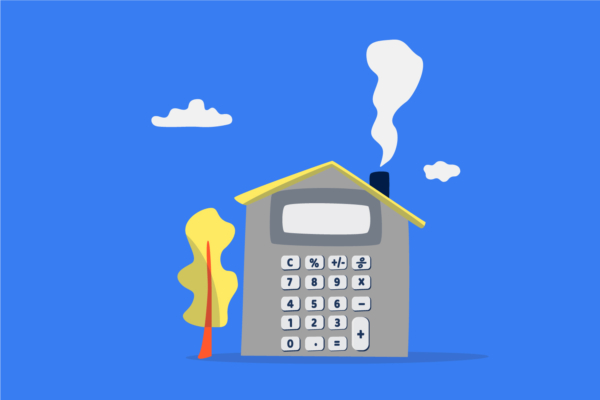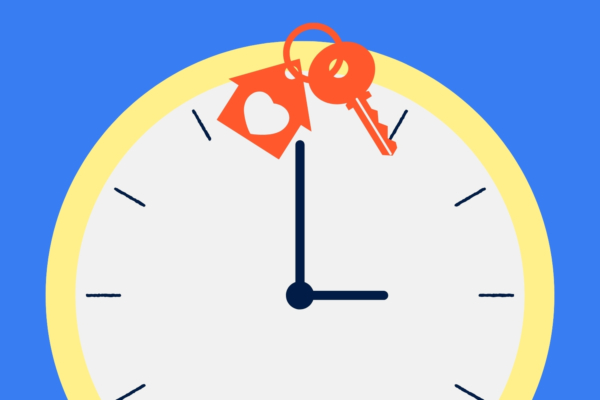
Should You Refinance Your Mortgage or Downsize Your Home?
Looking at ways to cut costs in your monthly spending so you have more for things like retirement savings, college funds, travel, and more? The answer may be right in front of you, or rather, all around you. We’re talking about your house— and the decision to refinance or downsize.
If done right, refinancing can lower your monthly mortgage payments or help you pay off your loan ahead of schedule. Downsizing can put money in your pocket and reduce your overall housing expenses. So which one is right for you?
As with everything in life, the first step towards the right decision is having all the information to weigh your options. We’ve broken down what you need to know about refinancing and downsizing, including when these choices make the most sense.
When to Refinance Your Mortgage
When you refinance, you’ll pay off your current mortgage with a new loan that has more favorable terms. For many, refinancing your home mortgage offers the best of both worlds— you can potentially save thousands of dollars and stay in the house you’re currently in. There are several situations where refinancing makes sense:
- Interest rates have fallen: A lower interest rate is one of the most popular reasons that people refinance. If rates have fallen, you can find yourself saving big bucks in reduced interest payments over the course of your loan.
- Your credit score has improved: Since credit score plays a large role in the interest rate you get, a significant improvement to your score could mean an interest rate that is a few points lower.
- You are refinancing to a shorter term: If you’re looking to pay your mortgage off sooner, you can refinance into a shorter term. For instance, if you are 10 years into a 30-year mortgage and refinance with a 15-year mortgage, you’ll pay off your home five years sooner.
The most important thing to do before refinancing is to put a pencil to paper and do the math–refinancing doesn’t automatically mean savings.
Breaking Even on a Refinance
The most important thing to think about when you refinance is the break-even point. This is the point in time in which your savings surpass the costs of taking out a new loan. Consider the potential closing costs of your refinanced home loan: the loan application fee, home appraisal fee, title search, credit report fee, and more. Will your savings surpass this upfront cost?
It can sometimes take years to start feeling the overall savings, which is why you should carefully consider the option and think about how long you plan on staying in the house.
| Pros of Refinancing |
|---|
| You get to keep your home and current lifestyle. You can’t put a price on the memories and sentimental value of a home. And for some, it can be hard to adjust to living in a smaller house.You may be able to pay your home off sooner. If you refinance to a 15-year mortgage, you can pay your house off sooner, potentially shaving thousands off your total interest costs.You can use your refinance to borrow money. Looking to take out a loan for other expenses? If you opt for a cash-out refinance, you can pocket some of the loan money to use for things like home improvements, debt consolidation, and more. |
| Cons of Refinancing |
|---|
| It doesn’t always save you money in the long run. If you’ve paid 15 years or more on your mortgage, you’re most likely at the point where you’re mostly paying principal. Even if this does boost your cash flow, the bigger question is whether savings would offset the refinancing costs in the end. |
When to Downsize Your Home
You may find yourself in a situation where your house is too big for your current needs. Perhaps your kids have grown and left the house, leaving you with more space than you care to keep up. Instead of saving by refinancing your home, you can save big by selling your current house and purchasing a smaller, more affordable place.
Downsizing is a great alternative when it isn’t a good time to refinance or you’re simply looking to cut down on other expenses as well. A smaller house typically means reduced utilities, insurance, and maintenance costs, putting even more money back in your pocket every month.
Additionally, if you have enough equity built up in your current home, you might be able to pay off your smaller house in full. This would mean the house would be yours without having to go through years of mortgage payments.
Remember, it’s always important to consider the housing market when purchasing a new house. If you downsize at the wrong time, you might find that your downsize is only in size— not in your monthly payments.
| Pros of Downsizing |
|---|
| You can simplify and save. A smaller house usually means smaller utility, insurance, and tax bills. Upkeep is also easier.You can reduce or eliminate your mortgage. If you’re motivated to eliminate your mortgage quickly because you’re nearing retirement, using the equity toward your new home makes that easier. Better yet, if selling your current home allows you to pay cash on the next, you can move on to your next financial goals |
| Cons of Downsizing |
|---|
| You have to move. Moving can be a huge hassle— and an expensive one if you’re paying movers to help. Getting rid of belongings that won’t fit in the new house can be time-consuming and stressful.The market might not be right for a move. At times, a newer, smaller house with all the amenities you seek can cost just as much as the house you are already in. Add in a prime location, and the price of the new place could equate to or even exceed the one you’re currently living in. |
Is it better to refinance your mortgage or downsize your home?
There’s no straightforward answer to whether refinancing or downsizing is the better option. It all depends on your unique situation, current market and economic circumstances, and your future needs. To make the right decision, be sure to take all of these factors into consideration. If you play your cards right, you’ll find yourself in a home that you love for less!
Learn more about refinancing with Amplify.
Talk to our Real Estate team today to learn more about what a refinance can do for you!

